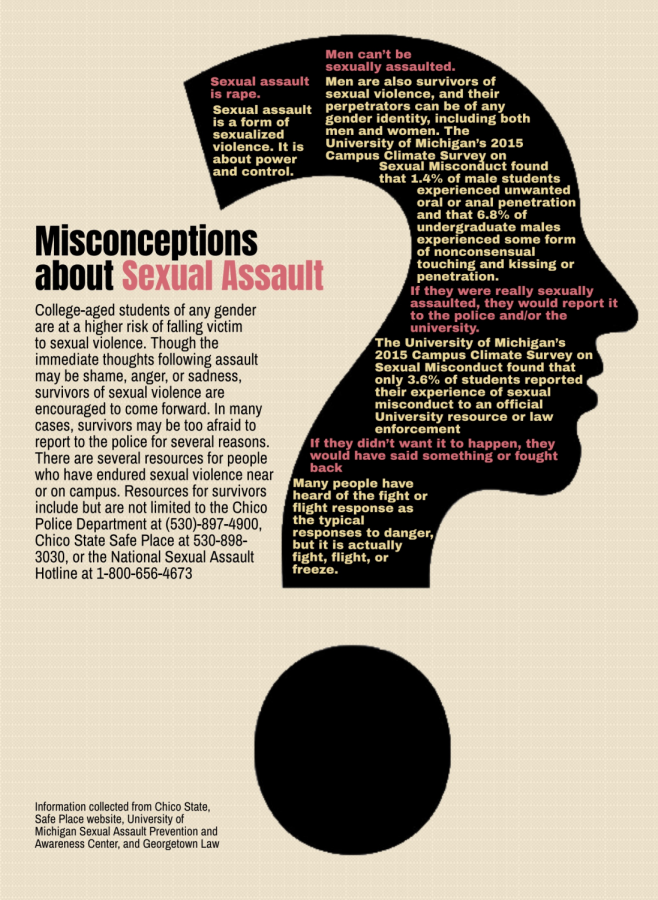With several school-led attempts to educate students on consent and sexual misconduct through required programs such as “Not Anymore,” students are advised to reach out to school-supported assets to report offenses — but few actually do so.
While students are required to fulfill alcohol and consent training, in the event of an assault, some students grapple with the question of if they should report and who they should reach out to.
The main resources for support on campus are Safe Place and the Counseling & Wellness Center. Safe Place serves as a confidential outreach to students who have experienced sexual assault, intimate partner violence, or stalking. These resources offer a plethora of support through crisis intervention, prevention education, resources and referrals.
While Safe Place is an environment for survivors to come forward, the help doesn’t end there for students. With their consent, Safe Place can suggest that the reporter reaches out to the Health Center, or even the University Police Department if the reporter feels comfortable encouraging.
“Safe Place, the Student Health Center, and University police department are all collaborative partners, but we are distinctly separate,” advocate and administrator for Safe Place, Alix MacDonald said. “We don’t hand out cases, but rather work together if a student would like us to coordinate collaborative care for them. We must get a release of information from the student to allow us to talk with each other to connect the student to either service. Part of the role of Safe Place is to accompany/respond to students at the (Student Health Center) or UPD, so I often will meet students at the Health Center or University Police Department for their exam or law enforcement interview.”
MacDonald declined to answer other questions about the issue, including why students tend to under-report assaults to police.
Chico State’s Title IX oversight committee also honors confidentiality to respect the privacy of survivors.
“Confidentiality can be complex, especially around Title IX type issues,” Dylan Sakke, director of Title IX, said. “Safe Place and the Counseling and Wellness Center are truly confidential in that what people share in there is not only confidential but privileged by law. No one can make you share. We guard that information privately. We also keep it confidential.”
To further affirm the confidentiality of the campus resources, UPD Chief John Reid explained that information available to students following a case of sexual assault is limited to only necessary information such as time, general location, and the reported crime. The information regarding the investigation or the offender is not accessible to the public to respect the privacy of the reporter.
The unfortunate fact is that often, sexual assault cases go unreported due to several misled fears, according to University Police Chief John Reid.
Why students have trouble seeking law enforcement is a complicated question.
“The vast majority of people do not want to report to law enforcement,” Saake said. “Mostly they want to understand their options, what the process looks like, but most do not what to pursue charging the offender. The process is hard, potentially you’ll be on the witness stand or cross-examined, so many people are discouraged. It’s easy to call our cops, but from there it’s more complicated.”
Saake said that many different student groups and students individually have different relationships with law enforcement.
“Some people feel more comfortable working with cops than others, some communities have different experiences with law enforcement than others, and that’s the beauty of having facilities set up such as Safe Place. We can schedule an appointment for you if that’s what you want and explain to you what to expect,” Sakke said.
Conversely, law enforcement on campus describes their relationship with the campus community.
“In my lens, I’m trying to treat people with respect, and have a good reputation that I work really hard to establish,” UPD commander Chris Nicodemus said. “There are some people who have had different experiences with law enforcement but what we need to do and what I’ve been having officers work on is taking on the lens of other people — just because if I don’t feel scared doesn’t mean that another student wouldn’t. We’re trying to fix that divide and have communication.”
“We’re always in dialogue with our faculty, staff, and students as far as trying to figure out what is needed, and making those adjustments,” he said.
Kimberly Morales can be reached at [email protected] or @kimberlymnews on Twitter.










John // Oct 21, 2019 at 2:48 pm
As long as Greek Life, especially unaffiliated Greeks organizations, exist at Chico State there will be no end to the sexual assault epidemic.